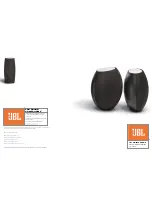
Figure 14.
Flat Position
Figure 13.
Weave Bead
Figure 12.
Stringer Bead
18
There are two basic types of weld beads, the
stringer bead and the weave bead.
1. The STRINGER BEAD (Figure 12) is
formed by traveling with the torch in a
straight line while keeping the wire and noz-
zle centered over the weld joint. This is the
easiest type of bead to make.
2. The WEAVE BEAD (Figure 13) is used
when you want to deposit metal over a wider
space than would be possible with a stringer
bead. It is made by weaving from side to side
while moving with the torch. It is best to hesi-
tate momentarily at each side before weav-
ing back the other way.
WELDING POSITIONS
There are four basic welding positions: flat,
horizontal, vertical, and overhead.
1. The FLAT POSITION (Figure 14) is the
easiest of the welding positions and is most
commonly used. It is best if you can weld in
the flat position if at all possible as
good results are easier
to achieve.
2. The HORIZONTAL POSITION (Figure 15)
is next in difficulty level. It is performed very
much the same as the flat weld except that
angle B (see HOLDING THE TORCH - p.15)
is such that the wire, and therefore the arc
force, is directed more toward the metal
above the weld joint. This is to help prevent
the weld puddle from running downward
while still allowing slow enough travel speed
to achieve good penetration. A good starting
point for angle B is about 30 degrees DOWN
from being perpendicular to the work piece.
3. The VERTICAL POSITION (Figure 16) is
the next most difficult position. Pulling the
torch from top to bottom may be easier for
many people, but in some instances it can be
difficult to prevent the puddle from running
downward. Pushing the torch from bottom to
top may provide better puddle control and
allow slower rates of travel speed to achieve
deeper penetration. When vertical welding,
angle B (see HOLDING THE TORCH - p.15)
is usually always kept at zero, but angle A
will generally range from 45 to 60 degrees to
provide better puddle control.
Figure 16.
Vertical Position
Figure 15.
Horizontal Position
Summary of Contents for MMIG125
Page 8: ......
Page 23: ......
Page 24: ...24 TABLE 5 TROUBLESHOOTING ...
Page 25: ...25 MMIG125 WIRING DIAGRAM ...
Page 26: ......
Page 27: ...27 1 888 287 6981 ...











































